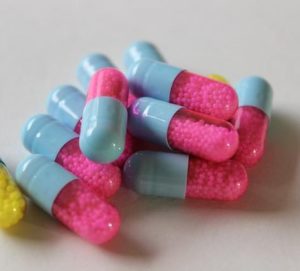Polymyositis
What is polymyositis?
Polymyositis is a rare inflammatory disease that causes muscle weakness affecting both sides of the body. Polymyositis is one of several idiopathic inflammatory myopathies – a group of muscle diseases that involves inflammation of the muscles or associated tissues, such as the blood vessels. A myopathy is a muscle disease.What are the symptoms of polymyositis?
The muscle weaknesses associated with polymyositis involve the following muscles/parts of the body:- Hips
- Thighs
- Shoulders
- Upper arms
- Neck
What causes polymyositis?
The exact cause of polymyositis is unknown, but it shares many characteristics with autoimmune disorders, in which the immune system mistakenly attacks its own body tissues.How is polymyositis diagnosed?
Polymyositis is often suspected in people with muscle weakness and other associated signs and symptoms. Additional testing can then be ordered to confirm the diagnosis, including:- Blood tests
- Electromyography
- Imaging tests such as an MRI
- Muscle biopsy
What are the available treatments for polymyositis?
To date, there is no cure for polymyositis. Treatment options exist to improve muscle strength and function, including:- Corticosteroids
- Corticosteroid-sparing agents.
- Rituximab (Rituxan)
Where can I find out more about polymyositis?
Polymyositis Articles

ICYMI: His Doctors Finally Discovered the Cause of His Immune-Mediated Necrotizing Myopathy
Rose Duesterwald
July 6, 2022
Read More »
Researchers Find a Path Forward for Patients With Polymyositis
Rose Duesterwald
April 22, 2022
Read More »

Infections Are Leading Cause of Hospital Death in Indian Patients with Inflammatory Myopathy
Alyssa Stevens
November 26, 2021
Read More »


Experimental Drug Earns Orphan Drug Designation for Polymyositis and Dermatomyositis
James Moore
November 2, 2020
Read More »

Safe Pregnancies with Rheumatic Diseases are Possible with Planning
Trudy Horsting
October 2, 2020
Read More »

Researchers Find Effective Biomarker for Predicting Severity of Myositis-Associated Interstitial Lung Disease
Trudy Horsting
June 29, 2020
Read More »

No Improvement in Mortality Rate for Idiopathic Inflammatory Myositis
Jessica Lynn
June 19, 2020
Read More »




